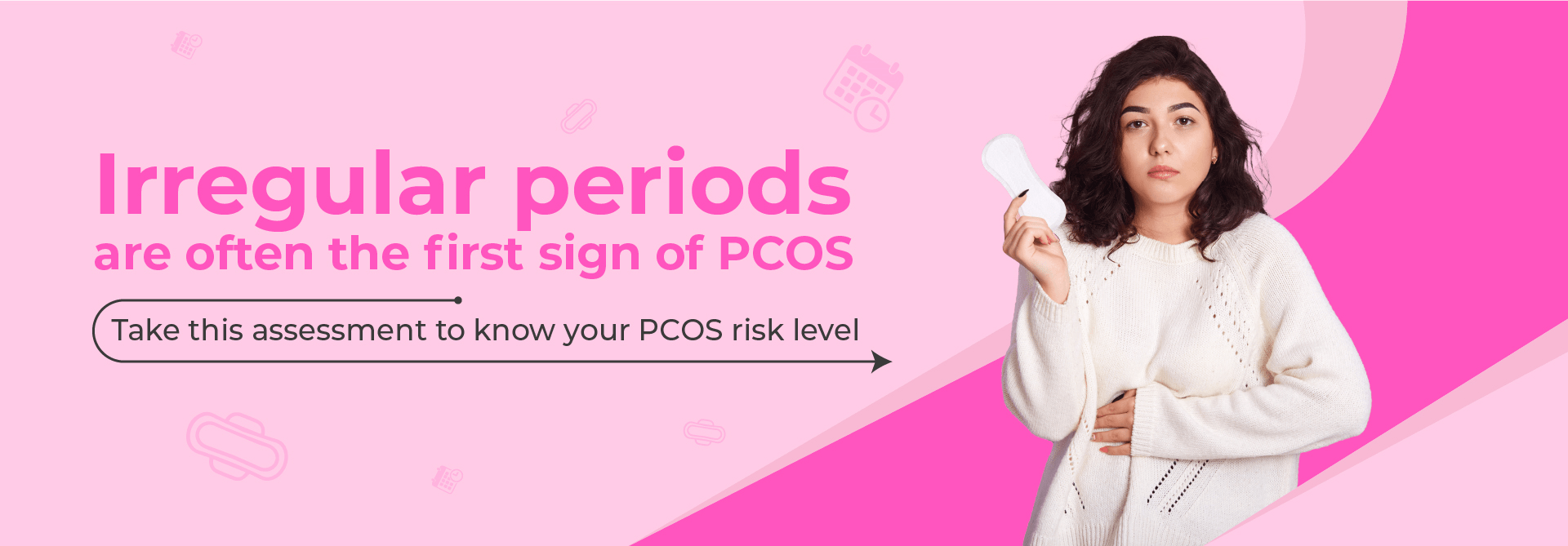Have Headaches During Periods? This Could Be The Reason
31 months ago
4 minute read.

Many women get headaches around the time of their menstruation. These headaches can be severe and interrupt daily activities. Period headaches can be mild and come with other symptoms like irritability and sore breasts. A menstrual migraine headache can occur before, during, or post a period.
If you get headaches during your period, you may be wondering why this happens and what you can do to relieve the pain. Throughout your monthly menstrual cycle, your hormones fluctuate. Your estrogen levels drop just before your period arrives, assuming you did not become pregnant after ovulation. Estrogen regulates your period cycle and can affect headache-related substances in your brain.
In this blog, we'll explore the reasons behind period headaches and some ways to manage them.
What Causes Headaches During Menstruation?
Headaches during menstruation are a common problem for many women. There are several possible causes of menstrual headaches, including hormonal changes, changes in blood flow, and stress.
One of the primary causes of menstrual headaches is the fluctuation of hormones, specifically estrogen, and progesterone. During the menstrual cycle, these hormones rise & fall and can affect blood vessels in the brain. When estrogen levels drop, blood vessels in the brain can narrow, leading to headaches.
Changes in blood flow may also contribute to menstrual headaches. During menstruation, blood flow to the uterus and ovaries increases, which leads to increased blood flow to the head. This increased blood flow can cause headaches or migraines in some women.
Also Check: What Does The Menstrual Blood Color Say About Your Health?
Stress is another potential cause of menstrual headaches. Many women experience increased stress and anxiety during their menstrual cycle, which can trigger headaches.
Dehydration, lack of sleep, and changes in food or exercise routines are other potential causes of menstrual headaches.

Difference Between Hormonal Headache & Menstrual Migraine
Hormonal headaches and menstrual migraines are two types of headaches that are often associated with hormonal changes in the body, but they have some differences.
Hormonal Headaches are typically headaches linked to changes in hormone levels, such as those that occur during puberty, pregnancy, and menopause. These headaches can occur at any time during a woman's menstrual cycle but are most common during the first few days of menstruation.
Menstrual Migraines are specifically linked to the menstrual cycle. They occur within two days before the start of menstruation or within the first three days of the menstrual period. They are often more severe than other types of migraines and may come with other symptoms like nausea, vomiting, and sensitivity to light and sound.
Related Read: Suffering From A Headache Or Migraine? Know The Difference
Hormonal headaches and menstrual migraines are caused by changes in hormone levels, particularly estrogen.

Treatments For Period Headache
1. Birth Control Pills: Birth control pills can be an effective treatment for menstrual headaches in some women. Menstrual headaches are often triggered by changes in hormone levels, particularly a drop in estrogen levels that occurs during the menstrual cycle. Birth control pills contain synthetic hormones that can help regulate hormone levels, which may reduce the frequency and intensity of menstrual headaches.
2. Over-The-Counter Pain Relievers: Non-steroidal anti-inflammatory drugs (NSAIDs) such as ibuprofen or aspirin can help alleviate the pain of menstrual headaches. It is advised to take these medications at the onset of symptoms and continue for a few days.
3. Hormone Therapy: Hormone therapy is advised to regulate hormones during the menstrual cycle and reduce the frequency and intensity of menstrual headaches.
Must Check: Remedies for Menstrual Cramps
Some Lifestyle Modifications That Can Help With Menstrual Headache
Lifestyle changes can help reduce the frequency and intensity of menstrual headaches. Here are some tips:
1. Regular Exercise: regular physical activity can help improve blood flow and reduce stress, which can help alleviate menstrual headaches.
2. Diet: Maintaining a healthy and balanced diet, with plenty of fruits, vegetables, and whole grains, can help reduce inflammation and stabilize blood sugar levels, which can help prevent menstrual headaches. Also check- PCOS Diet: What you should be eating (and what not)
3. Hydration: Drinking plenty of water and staying hydrated throughout the day can help reduce the frequency and severity of menstrual headaches.
4. Sleep: Getting enough sleep and maintaining a consistent sleep schedule can help regulate hormone levels and reduce stress, which can help prevent menstrual headaches.
5. Stress Reduction: Practicing relaxation techniques such as deep breathing, meditation, or yoga can help reduce stress levels, which can help alleviate menstrual headaches.
6. Avoiding Triggers: Identifying and avoiding triggers such as certain foods, alcohol, and caffeine can help prevent menstrual headaches.

In A Nutshell
Headaches during periods are a common experience for many women. The hormonal changes that occur during menstruation can trigger migraines or tension headaches. Keeping track of headache patterns and seeking medical advice can help manage and treat menstrual headaches. Additionally, lifestyle changes such as stress management techniques, regular exercise, and a healthy diet can also help reduce the frequency and intensity of menstrual headaches.
Leave a Comment
Related Articles
Health Checks @ Home
Service
Explore
© 2025 Truworth Health Technologies Pvt. Ltd.




